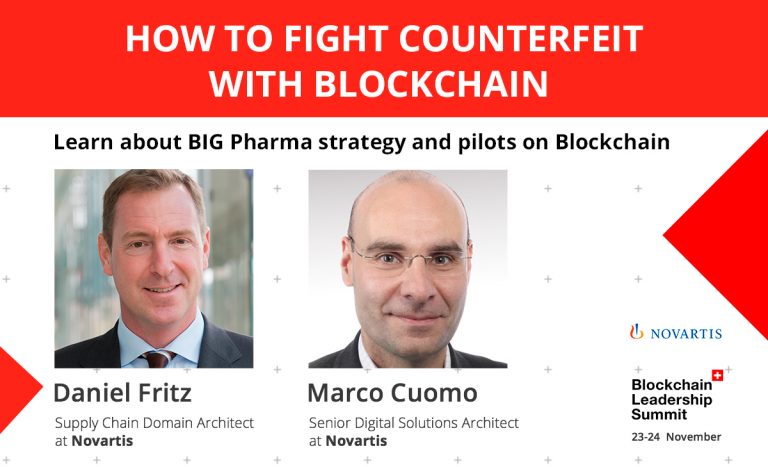2019-1-18 19:14 |
Blockchain Technology Moves Towards Achieving Data Privacy In Healthcare
The progress of technology has allowed numerous industries around the world to become faster, more accurate, and more efficient, which includes even healthcare organizations. In fact, ever since healthcare organizations adopted digital solutions for maintaining patient and research records, their efficiency grew exponentially. With additional technological advancements over time, managing health-related data is expected to become even more practical, easy, and useful.
With that said, there are certain drawbacks when it comes to computerization of sensitive information. There are numerous examples where this may be troublesome, such as the introduction of new burdens for doctors, risks of online attacks, security breaches, information theft, and alike. In the last several years especially, hacking attacks on hospitals caused a lot of damage. Whether it is a malware attack, such as WannaCry ransomware that hit numerous organizations including healthcare in 2017, or DDoS attacks that can shut down entire systems and damage equipment — online threats remain a serious issue.
This is why regulations that can manage privacy concerns are crucial, and the US introduced HIPAA (Health Insurance Portability and Accountability Act), while the EU introduced GDPR (General Data Protection Regulation).
However, there is another problem with data managing systems in hospitals, which concerns software innovations. These updates need to arrive at the level of the entire organization, which often takes time, and leaves hospitals vulnerable to attacks. There is also an issue of patients not being in control over their data, which can be wrong, accessed by someone without proper authorization, or be endangered in some other way.
These and other issues create confusion and tension in the industry, which disrupts the efficiency of data management which was the original goal. By far, the largest concern is data security, and if this is not achieved, all other use cases suffer as a result. However, securing the data can often have a significant impact on communication efficiency, which is the original goal, as stated. In other words, data can either flow freely between organizations to achieve the best efficiency, or it can be secured, but hard to get.
Blockchain In healthcareThe introduction of blockchain technology seemingly fixes all the problems and provides a safe way of reaching data, high security, and it gives patients control over who can access their information. At least, this is what the situation looks like at first glance. The problem lies in the fact that new issues appear, particularly when it comes to data privacy.
A lot of blockchain platforms were designed to publicly spread data, which is something that they are now trying to change through different methods, such as adding new layers which would obfuscate private information. However, this is also not as simple as it may sound, as all the different layers need to interoperate. Otherwise, the blockchain will not be useful.
Blockchain technology offers numerous use cases in healthcare, and most of its potential lies in quick and easy information sharing and storing, low costs, transparency, as well as data protection, as information stored on the blockchain cannot be changed, manipulated or deleted.
Furthermore, patients' medical history would be under their own control, which would allow them to choose who can see it, what aspects of the data can be accessed, and alike. Not to mention medical research data, which often requires millions of dollars and years of research. If not stored correctly, the information can get lost, modified, or impacted in some other way, often resulting in flawed research. With blockchain technology, the possibility of something like that happening would be greatly reduced.
There Is Still One Big Security FlawWhile the blockchain technology itself protects the data in ways described earlier, it still has to assume that users are willing to allow others to view the data that they are sharing, which is not always the case. For example, sometimes there is a need to send specific information to a computer for a purpose, but the computer's owner is not supposed to be able to see it.
This is often the case when specific verification is necessary, but the patient willing to provide it does not want to share their entire medical history. This is where additional tools can be useful, especially those that can encrypt data and isolate information that is not supposed to be shared. That way, the combination of blockchain and additional software can protect data even when it needs to be exposed to others for a specific purpose.
Another use case would be to share information about unique medical circumstances among researchers. By only protecting certain parts of information, like the patient's identity, researchers would still be able to gain access to details regarding the patient's case.
The use of blockchain in the healthcare industry can improve the security of data and the anonymity of patients without having to impact the effectiveness of the system. It would also include low costs and higher data accuracy, which is ultimately one of the top goals for any industry. And, with new solutions to common problems, it is possible that it will not take long before using blockchain in such a way becomes a reality, and maybe even standard practice.
origin »Bitcoin price in Telegram @btc_price_every_hour
Advanced Technology Coin (ARC) на Currencies.ru
|
|




















